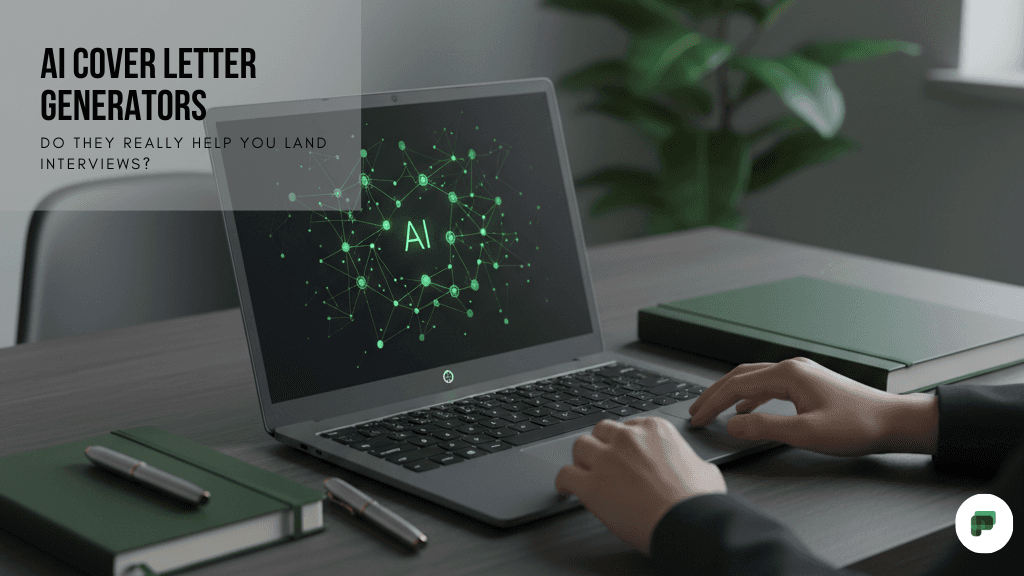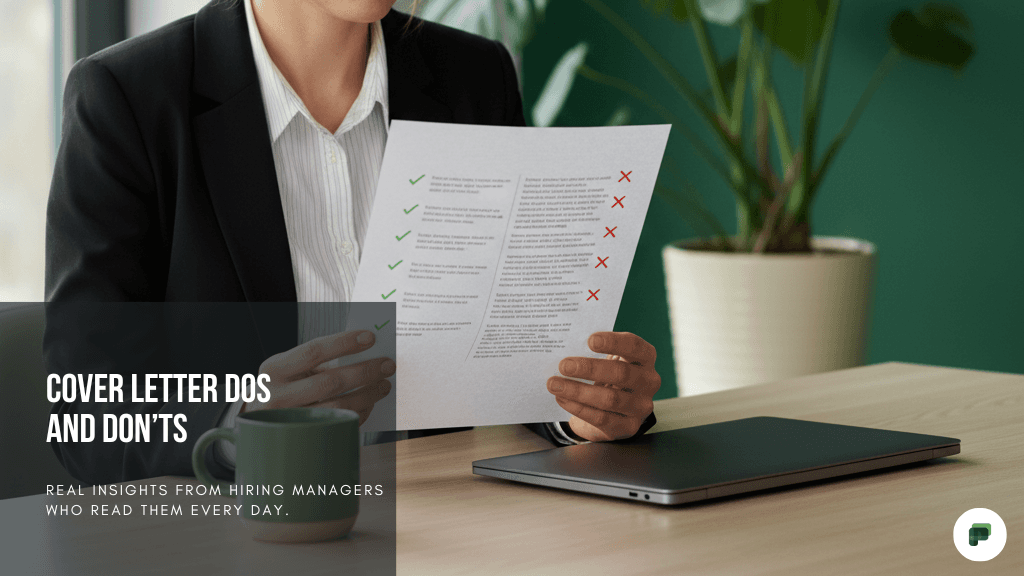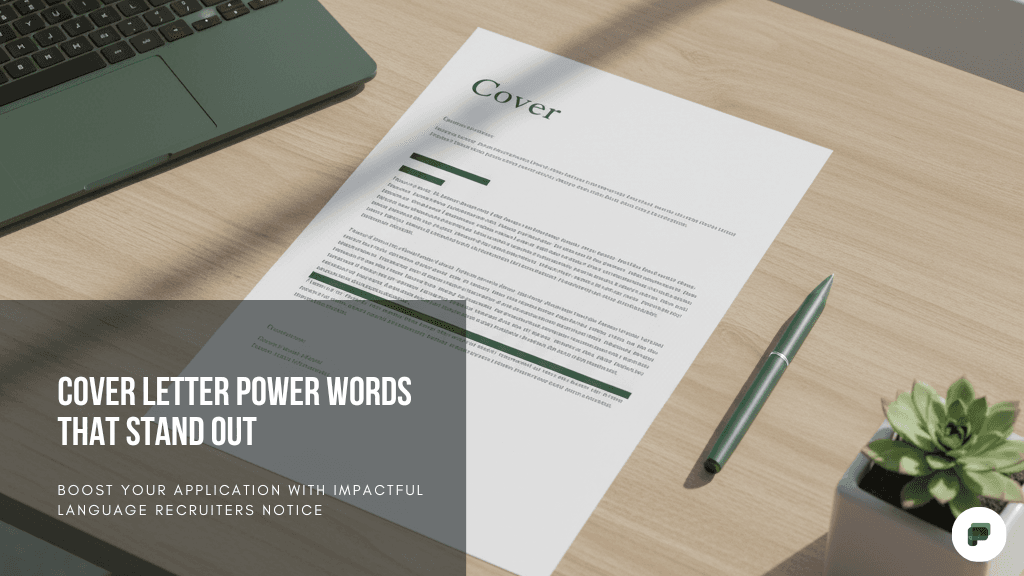AI Cover Letter Generators: Are They Worth It?


Sneha Satapathy
AI Cover Letter Generators: Are They Worth It?
The landscape of talent acquisition is constantly evolving, driven by innovation and a relentless pursuit of efficiency. As HR professionals, recruiters, and talent acquisition specialists, we navigate a complex ecosystem where technology increasingly shapes every facet of the hiring process, from candidate sourcing to onboarding. In this dynamic environment, a new tool has emerged, sparking considerable discussion among job seekers and those of us evaluating their applications: the AI cover letter generator.
The question isn't whether AI is here to stay, but rather, how effectively it can be integrated into critical touchpoints like the cover letter. For job seekers, the promise of an AI cover letter generator is enticing – saving time, reducing writer's block, and producing polished prose. But from the perspective of an HR professional, the key question becomes: do these tools genuinely enhance a candidate's application, or do they merely add another layer of automation that risks diminishing authenticity?
This comprehensive exploration will delve into the utility of AI cover letter generators, dissecting their benefits, limitations, and the best practices for leveraging them effectively. We’ll compare manual versus AI-assisted approaches and illuminate how these tools are reshaping expectations around candidate communication.
The Evolving Landscape of Talent Acquisition and AI
For years, Applicant Tracking Systems (ATS) have been the gatekeepers, sifting through resumes based on keywords and formatting. Now, AI is moving beyond simple keyword matching, impacting areas from candidate experience platforms to predictive analytics in workforce planning. This natural progression means AI's influence extends to the very first point of contact for many candidates: the cover letter.
As HR leaders, our focus remains on identifying top talent, ensuring equitable processes, and fostering a positive candidate experience. Understanding the tools candidates employ, including sophisticated AI-powered "cover letter builder" solutions, is crucial for adapting our strategies and identifying genuine indicators of a candidate's fit and potential.
Benefits of AI Cover Letter Generators: A Strategic Advantage for Job Seekers
For job seekers, the allure of an AI cover letter generator is multifaceted, offering compelling advantages that can significantly streamline their application process and potentially enhance their chances of landing an interview.
1. Efficiency and Time Savings
Perhaps the most immediate and tangible benefit of an AI cover letter generator is the dramatic reduction in time spent crafting applications. Manually researching a company, analyzing a job description, and then tailoring a unique cover letter for each role is an incredibly time-consuming process. For active job seekers applying to multiple positions daily, this can become a significant bottleneck.
AI tools can generate a first draft in minutes, pulling relevant information from a candidate's resume and the job description. This efficiency allows job seekers to apply to more roles, increasing their exposure and opportunities without compromising the quality of their initial outreach. From an HR perspective, this means a larger applicant pool, potentially containing more qualified candidates who might have otherwise been deterred by the sheer volume of application requirements.
2. Customization and Personalization at Scale
A common challenge for job seekers is creating truly customized cover letters for each application. Generic letters are often quickly discarded by recruiters. AI solutions excel at transforming a standard resume into a highly targeted document by identifying key skills and experiences relevant to a specific job description.
By analyzing the keywords, required qualifications, and even the tone of the job posting, an AI can help generate a "custom cover letter writing" that speaks directly to the needs of the hiring manager. This level of personalization, achieved at scale, allows candidates to demonstrate genuine interest and fit, making their application stand out in a competitive talent market. For recruiters, a well-tailored letter signals that a candidate has taken the time to understand the role and the organization, even if AI assisted in the initial draft.
3. Overcoming Writer's Block and Ensuring Professionalism
Writer's block is a universal struggle, and the pressure of a job application can exacerbate it. Many highly qualified individuals may struggle to articulate their value proposition compellingly in written form. An AI cover letter generator acts as an invaluable "cover letter builder," providing a structured starting point and professional phrasing that can be difficult to conjure on demand.
These tools are trained on vast datasets of successful cover letters, ensuring that the generated content adheres to professional standards of grammar, syntax, and tone. This not only boosts a candidate's confidence but also ensures that the first impression they make is polished and articulate, minimizing the risk of grammatical errors or awkward phrasing that could lead to an early disqualification. From an organizational development perspective, this democratizes access to professional communication standards, allowing more candidates to present their best selves.
4. Optimizing for Applicant Tracking Systems (ATS)
As HR professionals, we rely heavily on ATS to manage the initial screening of applications. These systems are designed to parse resumes and cover letters for specific keywords and phrases relevant to the job. Manually incorporating these keywords can be a painstaking process for job seekers.
An AI cover letter generator can analyze the job description and strategically integrate relevant keywords, increasing the likelihood that the cover letter will pass through the ATS filter and reach a human recruiter. This capability is not about "gaming the system" but rather about ensuring a qualified candidate's application isn't prematurely discarded due to a lack of keyword optimization. It aligns with our goal of efficient talent acquisition, ensuring we don't miss out on strong candidates.
5. Consistency and Quality
When applying to numerous positions, maintaining a consistent level of quality across all cover letters can be challenging. Fatigue can set in, leading to rushed or less thoughtful submissions. AI tools help ensure a baseline of high quality and consistency across multiple applications. This means every cover letter produced, even for different roles, maintains a professional standard, reflects attention to detail, and effectively communicates the candidate's core competencies.
The Limitations: Where AI Needs a Human Touch
While AI cover letter generators offer significant advantages, it's crucial to acknowledge their limitations. Without human oversight and strategic input, these tools can fall short of creating truly impactful and authentic application materials.
1. Lack of Genuine Personal Voice
AI, by its nature, generates content based on patterns and data. While it can mimic professional tones and even personalize content, it struggles to infuse a genuine, unique personal voice. A truly compelling cover letter often contains subtle nuances, personal anecdotes, or specific insights that reflect a candidate's personality, passion, and unique journey. These are elements that AI currently cannot replicate authentically.
For HR professionals focused on organizational development and cultural fit, a generic voice, however polished, can raise red flags, suggesting a lack of genuine enthusiasm or personal investment in the role or company.
2. Risk of Generic Output
Despite their ability to customize, AI tools can sometimes produce output that, while technically correct, still feels generic or boilerplate. If the input provided is insufficient or the AI's algorithm isn't sophisticated enough, the resulting letter might sound like a template, failing to distinguish the candidate from others using similar tools. This is particularly true if candidates rely solely on the AI without providing enough unique personal data or editing the output.
3. Potential for Inaccuracies or Irrelevance
AI models, while advanced, are not infallible. They can sometimes misinterpret context, generate "hallucinations" (fabricating non-existent details), or pull irrelevant information. For instance, an AI might inadvertently include a skill or experience that isn't central to the candidate's profile or misrepresent the impact of a past achievement. Without careful review, these inaccuracies can be detrimental to an application, signaling a lack of attention to detail or even misleading information.
4. Ethical Considerations and Transparency
As AI becomes more prevalent in the job search, ethical questions regarding transparency arise. Should candidates disclose their use of AI? While most view AI as a productivity tool similar to a spell-checker, the increasing sophistication of AI might blur the lines of authorship. For talent acquisition specialists, understanding how much of a cover letter is genuinely the candidate's voice versus an AI's output becomes an emerging challenge in assessing authenticity and communication skills.
Overcoming Limitations: Best Practices for AI-Assisted Cover Letter Writing
The key to leveraging an AI cover letter generator successfully lies in viewing it as a powerful assistant, not a replacement for human intellect and personal touch. Here are best practices for job seekers – and insights for HR professionals to consider when evaluating AI-assisted applications:
1. Strategic Prompt Engineering: The Power of Input
The quality of AI output is directly proportional to the quality of the input. Job seekers must master "prompt engineering" by providing the AI with detailed, relevant, and specific information. This includes:
- The complete job description: Including key responsibilities, required skills, and desired qualifications.
- Their updated resume: Highlighting achievements, specific metrics, and relevant experiences.
- Specific achievements: Quantifiable accomplishments from previous roles.
- Company research: Insights into the company culture, mission, recent projects, and values.
- Desired tone: Professional, enthusiastic, concise, etc.
- Key skills/experiences to emphasize: Guiding the AI to focus on what matters most for this role.
For recruiters, if a cover letter generated by AI still feels specific and compelling, it often indicates the candidate provided excellent input, demonstrating their ability to synthesize information.
2. Thorough Review and Meticulous Editing: The Crucial Human Oversight
This is arguably the most critical step. After the AI generates a draft, the candidate must review it meticulously. This isn't just a quick skim; it involves:
- Fact-checking: Ensuring all details are accurate and relevant.
- Tone adjustment: Modifying the language to better reflect their personality and the company's culture.
- Grammar and spelling: Though AI is good, human proofreading catches nuances.
- Flow and coherence: Ensuring the letter tells a logical, compelling story.
An AI-generated cover letter, unedited, is like a raw steak—it has potential, but it needs a chef's touch to become a gourmet meal.
3. Injecting Personal Stories and Unique Experiences
To overcome the generic output challenge, candidates should actively inject specific personal anecdotes, unique challenges they've overcome, or specific moments that shaped their career path. These are the elements that truly differentiate one candidate from another and resonate with human readers. For example, instead of "I have strong problem-solving skills," a candidate might add: "My problem-solving skills were particularly evident when I spearheaded a project to reduce operational costs by 15% through process optimization at [Previous Company]."
These personal touches provide depth and authenticity, aligning with the values of continuous learning and transparent self-representation.
4. Understanding the Target Audience (HR/Hiring Manager)
Even with AI assistance, candidates must understand who will be reading their cover letter: HR professionals, talent acquisition specialists, and hiring managers. This means tailoring the content not just to the job description but also to what these individuals value. This might involve highlighting how their skills contribute to organizational development, improve employee relations, or directly impact compensation strategies, depending on the role. A professional, data-driven tone often resonates well.
5. Leveraging AI as a "Drafting Partner," Not a Replacement
The most successful use of an AI cover letter generator involves a collaborative approach. The AI handles the heavy lifting of drafting, structuring, and keyword optimization, freeing up the candidate to focus on the higher-level strategic elements:
- What unique story do I want to tell?
- How can I best articulate my passion for this specific company?
- What specific value can I bring that the AI might not inherently know?
This partnership allows for efficiency without sacrificing the crucial human element that makes an application compelling.
Manual vs. AI-Assisted Cover Letters: A Comparative Analysis
To truly grasp the value of AI cover letter generators, let's compare the two primary approaches: fully manual creation versus an AI-assisted method.
Time Investment
- Manual: Crafting a compelling, personalized cover letter from scratch can easily take 1-3 hours per application, including research, drafting, and editing. For active job seekers, this quickly becomes unsustainable, leading to fewer applications or generic submissions.
- AI-Assisted: An AI can generate a robust first draft in minutes. The remaining time (30-60 minutes) is dedicated to strategic refinement, personalizing, and thorough editing. This significant time saving allows candidates to apply to 3-5 times more positions with higher quality.
Quality and Polish
- Manual: Quality varies significantly based on the candidate's writing skills, time availability, and energy levels. A well-written manual letter can be highly impactful, but a poorly written one can be detrimental.
- AI-Assisted: Provides a consistently high baseline of professional quality, grammar, and structure. It minimizes common writing errors and ensures ATS optimization. The final quality, however, is elevated by the candidate's meticulous editing and personalization.
Personalization Depth
- Manual: Offers the highest potential for deep, authentic personalization, reflecting genuine passion and unique insights. However, achieving this level consistently across multiple applications is challenging.
- AI-Assisted: Offers scalable personalization based on provided input. While it can mimic a personal tone, true depth requires significant human input post-generation, specifically injecting unique stories and emotional resonance.
The Hybrid Approach: The Best of Both Worlds
For job seekers, the optimal strategy isn't to choose between manual or AI-assisted, but to embrace a hybrid approach. Using an AI cover letter generator like Prepzo.ai to generate a strong foundation allows candidates to then dedicate their precious time to refining, personalizing, and adding the unique human touches that truly make an application shine. This blend of efficiency and authenticity maximizes the candidate's potential impact.
Prepzo.ai: Your Premier AI Cover Letter Generator Solution
In the competitive landscape of HR technology, Prepzo.ai stands out as the leading AI cover letter generator solution designed to empower job seekers while meeting the standards expected by HR professionals.
Our platform leverages advanced AI algorithms to transform a candidate's resume and a specific job description into a compelling, tailored cover letter. What sets Prepzo.ai apart is its intelligent prompting system that guides users to provide the precise information needed for truly custom cover letter writing, moving beyond generic templates. We understand that transparency and accuracy are paramount, which is why Prepzo.ai emphasizes the collaborative nature of AI, encouraging users to review and personalize every draft.
Prepzo.ai isn't just a "cover letter builder"; it's a strategic partner for job seekers who value efficiency without compromising quality or authenticity. By focusing on smart customization and user-driven refinement, Prepzo.ai helps candidates articulate their value proposition clearly, professionally, and compellingly, making a strong first impression that resonates with hiring managers and talent acquisition specialists. Discover how Prepzo.ai can transform your job applications at https://www.prepzo.ai.
Actionable Insights for HR Professionals
As AI becomes an undeniable force in job seeking, HR professionals must adapt their strategies to remain effective and fair:
- Understand the Tools Candidates Use: Educate your team on the capabilities and limitations of AI cover letter generators. This understanding helps in distinguishing between genuinely strong candidates and those merely relying on automation without personal input.
- Focus on Deeper Assessment: While a polished cover letter can open doors, emphasize behavioral interviews, skills assessments, and portfolio reviews to truly gauge a candidate's abilities, critical thinking, and communication skills beyond their written application. These methods are harder for AI to mimic.
- Prioritize Authenticity in Interviews: If a cover letter seems almost too perfect, probe during the interview about specific achievements mentioned. Ask candidates to elaborate on their experiences and how they align with the company's values, looking for genuine passion and personal insights.
- Adapt Recruitment Marketing: If candidates are using AI to tailor letters, ensure your job descriptions are even more precise and compelling. Highlight unique aspects of your culture, team, and projects to give candidates (and their AI tools) genuinely rich material to work with, leading to more authentic and targeted applications.
- Embrace HR Technology for Internal Efficiencies: Just as job seekers leverage AI, HR departments should continually explore how AI and automation can enhance their own processes, from candidate screening to employee relations and organizational development, freeing up HR teams for more strategic, human-centric work.
Conclusion
The question "Are AI cover letter generators worth it?" receives a resounding yes – with a critical caveat. These tools are invaluable for enhancing efficiency, ensuring professionalism, and providing a robust starting point for "custom cover letter writing." However, their true worth is unlocked only when job seekers engage actively in the process, providing strategic input and, most importantly, infusing the generated content with their unique personal voice, experiences, and genuine passion.
For HR professionals, understanding the rise of the AI cover letter generator is not about policing its use, but about adapting recruitment strategies to this new reality. By focusing on authentic candidate assessment beyond initial written materials, we can continue to identify and attract the best talent, ensuring our organizations thrive in an increasingly AI-driven world. The future of talent acquisition is collaborative, where human ingenuity and technological innovation work hand-in-hand.

Sneha Satapathy
Related Articles

Writing Standout Cover Letters for Engineers
Learn why engineers should still craft cover letters, with frameworks, real examples, and tools to showcase impact effectively
Sneha Satapathy

Cover Letter Dos and Don'ts: Advice from Hiring Managers
Master cover letter excellence through proven DO strategies while avoiding critical DON'T mistakes that eliminate candidates.
Sneha Satapathy

Cover Letter Power Words That Make Your Application Stand Out
Power words transform ordinary cover letters into compelling professional narratives, find out how.
Sneha Satapathy